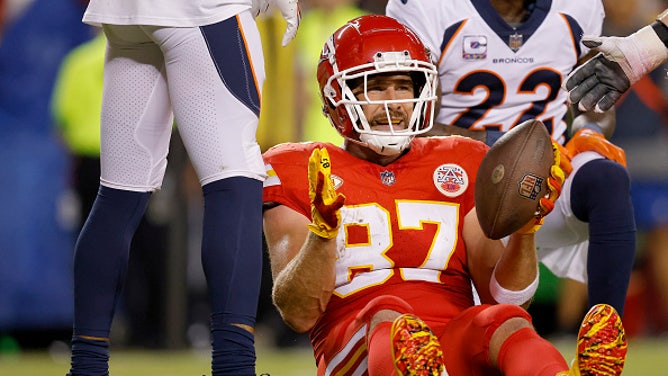Pfizer Revenues Tank, Is Travis Kelce Ad Campaign The Least Successful In History?
Pfizer released a series of extremely bad news Tuesday, most notably that revenues were down 42%, far outpacing analyst estimates.
But in even more concerning news for Pfizer investors, the company revealed that revenues related to its COVID-19 treatments, Paxlovid and the mRNA vaccine, were down a whopping 97% and 70% respectively.
That's unsurprising considering that uptake of the new booster dose was minimal, thanks to much of the public finally accepting that the vaccines and booster doses have no efficacy against infection, and that whatever protection exists rapidly fades against new variants anyway.
READ: NO ONE IS GETTING THE NEW COVID BOOSTER, DESPITE RELENTLESS CDC PROMOTION
The disappointing earnings weren't a total surprise. Just two weeks ago, Pfizer revealed that sales of its vaccines were far below expectations, leading to a $9 billion reduction in revenue estimates. As a result, it's implemented cost-cutting measures, which are expected to trim roughly $3.4 billion from its balance sheet.
Good thing it's running those Travis Kelce commercials nonstop!

KANSAS CITY, MISSOURI - OCTOBER 12: Travis Kelce #87 of the Kansas City Chiefs reacts after catching the ball against the Denver Broncos during the second quarter at GEHA Field at Arrowhead Stadium on October 12, 2023 in Kansas City, Missouri. (Photo by David Eulitt/Getty Images)
Pfizer's Marketing Clearly Isn't Working
In order to reverse the declining demand in the mRNA vaccines, Pfizer recently enlisted the help of one of the NFL's most popular players. Only to see his profile raised even higher after getting into a relationship with Taylor Swift.
The Pfizer commercials with Kelce have been ubiquitous during sporting events and other major broadcasts, with the 34-year-old telling viewers to get their COVID and flu shots at the same time. For all those expensive national ad buys and the payment to Kelce, Pfizer's received little to no benefit.
They've even partnered with the SEC to try and sell more COVID vaccines.
But no one is getting the new booster, regardless of who tells them to. Most Americans have finally realized that COVID presents a minimal risk in 2023, not to mention that natural immunity may be more protective anyway.
READ: NATURAL IMMUNITY FROM COVID MORE PROTECTIVE THAN VACCINATION, NEW STUDY FINDS
Pfizer's stock price dropped yet again, pushing the pharmaceutical giant down to $30.25 per share, a decrease of 40% this year alone. That price is also the lowest the stock has been since 2014.
Turns out the public can do two things at once, like Kelce said: avoid Pfizer's vaccines AND their COVID-19 treatments.